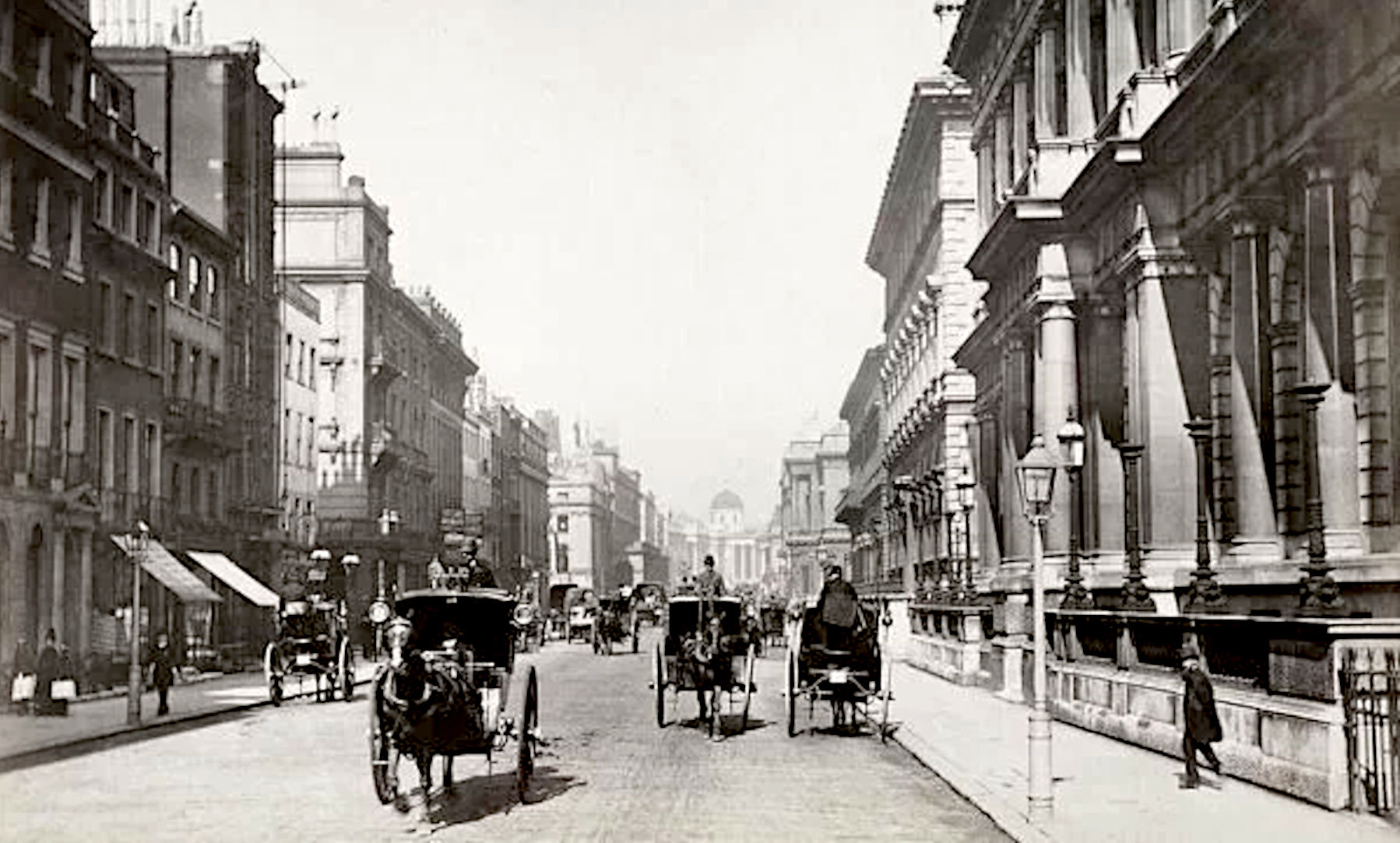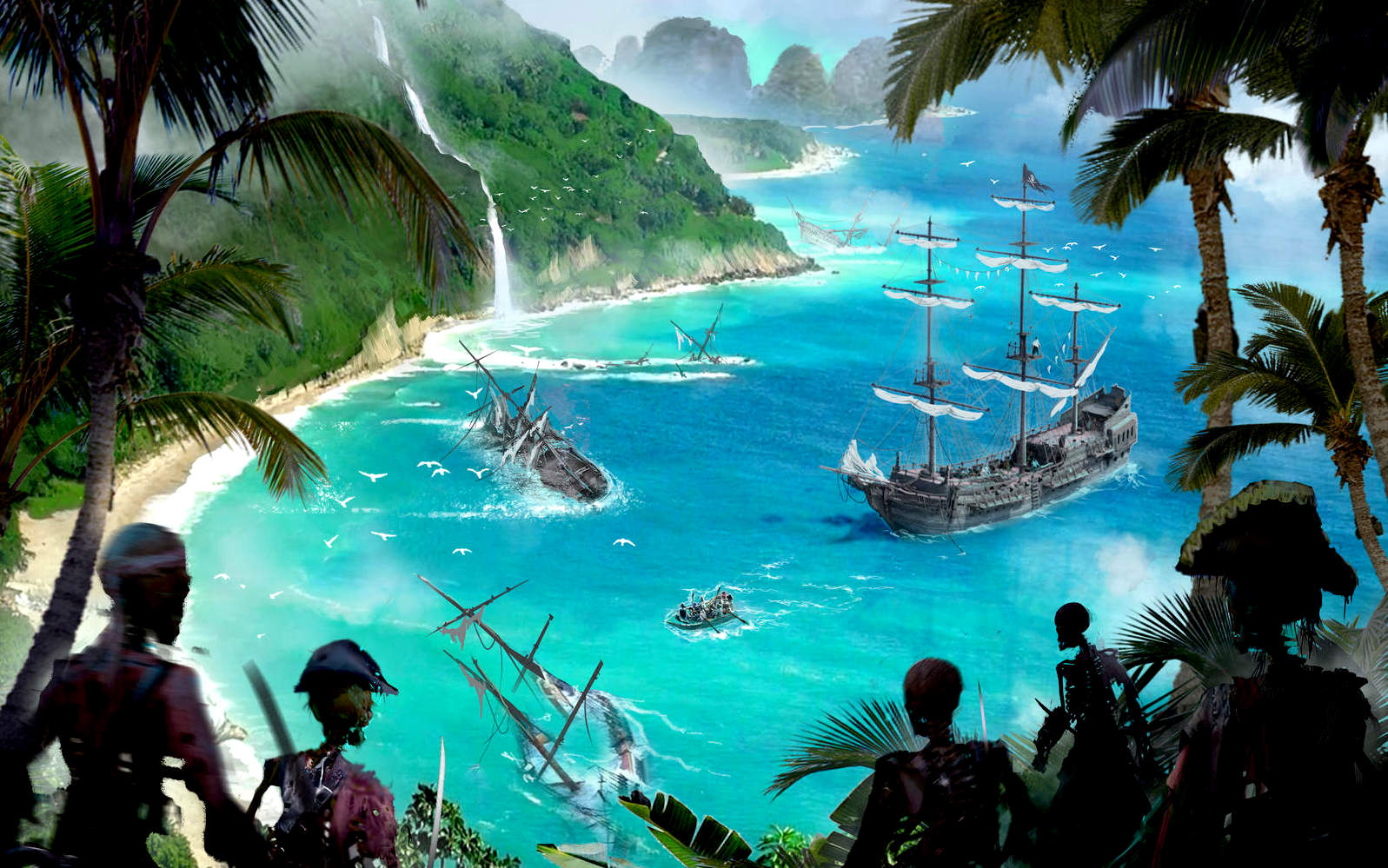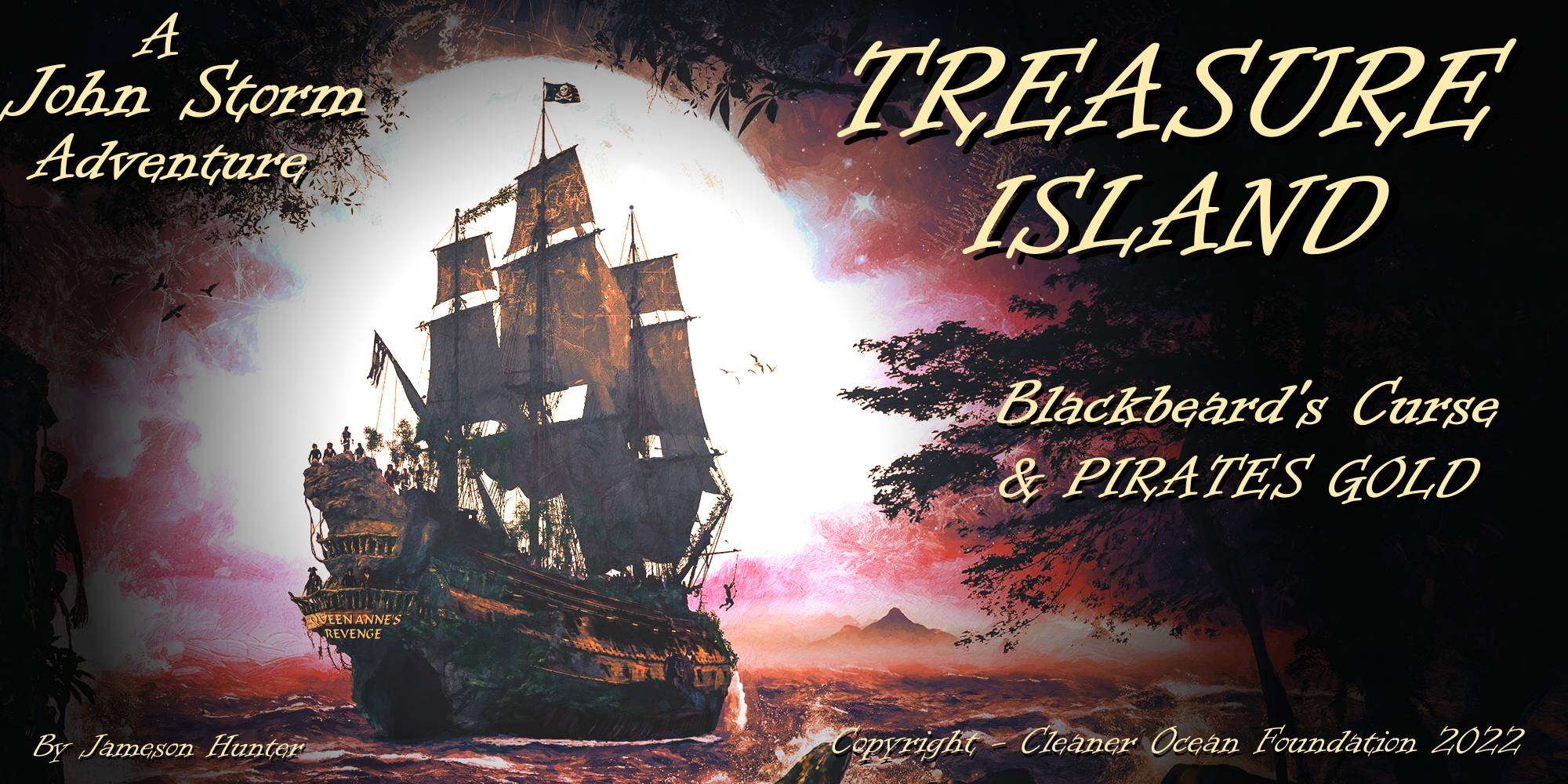|

One man has been guarding the
existence of a parchment that contains clues to the location of Edward Teach's secret treasure trove on an Island in the Caribbean, said to be guarded by a macabre human spirit manifesting itself with a golden human skull.
But the parchment is missing a vital code, to be able to decipher the clues.
The British Geographical Society (BGS) is a learned (fictional) society and professional body for geography based in the United
Kingdom, in the city of London. Not to be confused with the Royal
Geographical Society or British Geological Survey (maps).
The Society was founded in the 1800s as an institution to promote the 'advancement of geographical science'.
The society is governed by a Council, which is chaired by the Society's President, according to a set of statutes and standing orders. The members of Council and the President are elected from and by its Fellows, who are allowed to use the
post-nominal title FBGS (Fellow of the British Geographical Society).
Like many learned societies, it started as a dining club in London, where select members held informal dinner debates on current scientific issues and ideas.
A gentleman's club similar in association and famous for the fictional wager
of Phileas
Fogg, is the Reform
Club in Pall Mall, London : Around
the World in 80 Days.
The early history of the Society is inter-linked with the history of British Geography, exploration and discovery. Information, maps, charts and knowledge gathered on expeditions were sent to the BGS, making up its now unique geographical collections.
Only those with an interest in geography are eligible to apply to become a member of the BGS.
It is an exclusive thinkers club, highly discriminatory in structure, like
many London clubs, sometimes supported by political contributions to that
end.
Fellows of the Society must either be proposed and seconded by an existing fellow or an individual may submit evidence of his or her own work and academic publications in the field of geography and closely related subjects such as international development,
climate change and expedition medicine.
Applicants must be of at least 21 years of age and provide evidence of a body of relevant work; alternatively, a previous five-year commitment at the regular member level (less, at the council's discretion) is also considered for eligibility.
The Society's Research and Study Groups bring together active researchers and professional geographers in particular areas of geography.
Of particular interest to John
Storm, are the Climate Change Research Group, and Population Geography Research
Group, once a subject of interest to Benjamin
Franklin, one of the founding fathers of America. Concerned as he was
for independence from cruel British rule and extortionate taxes. And, John,
like Benjamin Franklin, is not fond of any rule that treats people unfavorably,
perpetuating a class system that keeps genuinely free thinkers away from
stuffy club culture.
An important way in which the BGS develops new knowledge and advances geographical science is by providing funding for geographical research and scientific expeditions. The Society offers a number of grants to researchers, students, teachers and independent travellers. Providing some £1.8 million to be shared by up to 10 innovators and for the reasonable recovery of historical artefacts. Of which the BGS will be entitled to recover monies from
treasure
trove, or to claim other non-treasureable items of cultural or of geographical or historic significance.
A
prominent member of the BGS is Lord
James Huntington, an avid follower of expeditions, keen to mount his own
expedition to either prove or disprove the existence of the mythical Skeleton
Island, though keeping this to himself. To this end he has lobbied for many a
year for kindred exploration, to no avail. But
then an earth tremor in the Caribbean
triggers interest in surveying the lost city of Port
Royal, with John Storm called in by UNESCO
to conduct a detailed survey and recover any exceptional archaeology from
the underwater city, before it is harmed again, with unimaginable historic
losses.

Clues
as to where Blackbeard's missing treasure is buried are contained in a
parchment possessed by Lord Huntington and a wooden engraving held by John
Storm. Both items are needed to find the hoard that Edward Teach worked hard
to keep a secret from his crew.
Where the BGS is not privy to the Blue Shield enterprise, save for cheering
it on, nevertheless, Lord Huntington is
invited to present on what is apparently, a wreckage with satellite
visuals that appear to confirm the existence of cannon onboard a sunken ship
in the vicinity of Port-au-Prince. Haiti, being a less than stable economy,
haunted by gang culture and increasing violent crime.
Not
wanting to be outdone by Blue Shield, the Society is keen to be seen to be
active, especially when a Royal
Navy guest will underpin funding, in the form of Commander
James Maynard.

|

